Strictly Personal
Access to Information, NGO and Media Regulation In Zambia, By Isaac Mwanza
Published
2 years agoon
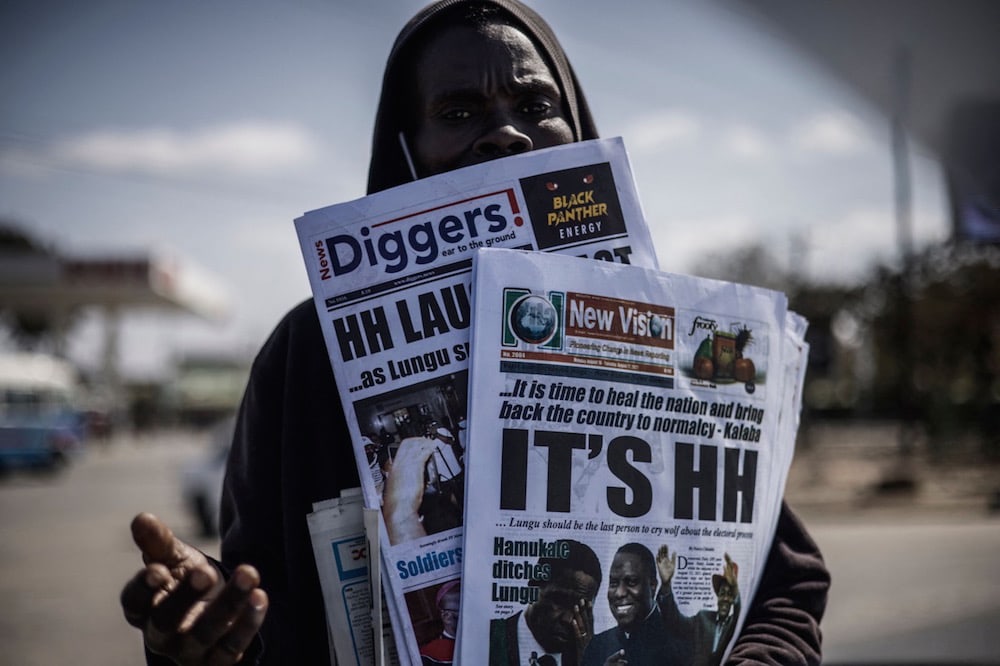
In Zambia, the questions of access to information (ATI), regulation of non-governmental organisations (NGOs), and the media have been a thorny generational issues which provokes personal, political, and professional debates as well as resistance from those likely to be affected by such pieces of legislation.
RELATIONSHIP BETWEEN ACCESS TO INFORMATION AND MEDIA REGULATION
Speaking when he featured on Hot FM Radio’s breakfast show in January, 2023, Zambia’s Justice Minister Mulambo Haimbe, S.C. said Zambians should expect progress on the enactment of the Access to Information Bill once the media themselves, resolve the issue of self-regulation, a matter that didn’t sit well with some media houses.
The Minister’s proposition obviously raises the question as to whether there is any link between access to information and media regulation? During the said programme, the Justice Minister said:
“The Access to Information Bill gives a lot of freedom not only to the media but also the general public in terms of access to information. Building into that, it comes with responsibility intended to be managed through a self-regulatory process with regard to the media…The two go hand in hand… So perhaps we have to look at it as a shared responsibility rather than a responsibility of government alone.”
If enacted, the Access to Information law will give both the media and the general public access to information that is generated or held by the government. For the media, such information is not for storage but to provide content and context to the news and communicating information to the public.
The media would be expected to sort through the information and determine what should be safely communicated to the public as well as how it should be communicated, without causing harm either to government operations, to persons or groups or organisations, or to the public itself. This, therefore, certainly comes with a huge responsibility.
It would not be wise to state that there is no relationship between freedom of expression, the freedom to access government information and freedom of the media. These three freedoms are interrelated and all three, give rise to a duty. Kenya has all these three freedoms enshrined in their Constitution.
Rights and freedoms do not exist without corresponding duties and responsibilities. While it is true that to access information is a human right, responsibilities on the part of those who claim and exercise that right, especially the media and civil society, are a logical consequence of claiming that right.
In order to enjoy the right to information, which we now claim to be a human right, corresponding responsibilities are required on the part of the media, citizens and for the state itself.
Monitoring content, especially that which may be generated from information obtained through the proposed access to information law, plays an important role when considering the role and the place of media accountability in the wider relationship between media freedom and media responsibility in a democratic society.
Government and citizens generally share a direct reciprocal relationship in which citizens elect government officials and must then adhere to laws made by the government which they put in place.
We must acknowledge the basic fact that the power to elect and put a government in place, does not put citizens above that government and the laws it may pass. The laws apply equally to both government and citizens.
Equally, the relationship exist between the media and government in which government must and is under an obligation to create a conductive environment for media freedom and freedom of expression to thrive.
The enactment of access to information law, although beneficial to citizens generally, creates an addition relationship between government and the media as a front in accessing information held by government.
The government will be producing an additional legal framework within which the media will be expected to operate as they access information held by the government.
The media will scrutinise activities of government based on information they would have accessed and then report to citizens who, at present, have a rather limited capacity to hold the media accountable for their activities as there exist a weak relationship between citizens and the media.
This is where media accountability plays a role at the interface among the three freedoms: access to information, freedom of expression and media freedom, all of which impose a duty of care on the part of the media and all who access such information.
So yes, the Minister was right. We need to resolve this issue of accountability of the media, and all other key stakeholders such as NGOs who must access information as a matter of a right, through some form of self-regulation.
ATTEMPTS TO REGULATE NGOS
The first attempt to regulate NGOs was done by means of statutory regulation when Government presented the 2007 NGO Bill to Parliament which was later withdrawn after civil society protested against it on the grounds that it was a draconian piece of legislation that could not facilitate any meaningful growth of the NGOs in the country. NGOs had instead, opted for self-regulation.
Even though the media and NGO fraternity relentlessly fought tooth and nail to stop statutory regulation in preference to self-regulation, government managed to carry out its will and eventually passed the NGO law. A fully-fledged statutory piece of legislation to regulate NGOs was enacted in 2009. The general feeling among activists was that the NGO law was to make the NGO movement weaker, not better.
NGOs later regrouped and challenged this statutory regulation of their movement in court, but later withdrew the action after Government promised to attend to the issues which the NGOs had raised in their action before the courts.
It would appear that, after a lengthy delay, Government will soon be presenting the proposed new NGO Act drafted by the Zambia Law Development Commission (ZLDC) in this session of Parliament which, as far as this author is aware, has failed to respond to earlier demands by NGOs for self-regulation, or to give more voice and power to NGOs. It has even failed to provide for more seats for NGOs on the NGO Registration Board.
The new NGO Bill, if enacted into law, will strengthen statutory regulation of NGOs and has maintained government’s far-reaching powers to approve the area of work for NGOs, and places NGOs to work at the direction of a government minister who will have power to issue statutory instruments for purposes of dealing with any regulatory matter of NGOs, as the minister and his technocrats see fit.
The proposed Bill is as draconian as the 2009 NGO Act, leaving the NGOs in exactly the same place as they were in 2009, which brings into question the wisdom of their decision to discontinue their court action challenging the original NGO Act in 2009.
An examination of the proposed new NGO Bill shows that there are provisions in the proposed statute which give a semblance of self-regulation by blurring the prominence of persons or entities which are being regulated.
The proposed new Act also obfuscates and mixes up certain roles, resulting in confusion among role players and presents what is essentially a false picture of self-regulation when in fact the power to regulate, is vested in the office of the minister, to be exercised by government officials.
The author has not yet seen the final version of the Bill as completed by the Ministry of Justice but NGOs are advised to be on the look out for it, once it is made public. Self-regulation of NGOs which is binding by statute is the way to go but not in a manner it was resolved through the ZLDC-led consultations. What came out from those consultations is far from self-regulation by NGOs.
[To be continued tomorrow]
You may like
-


Zambia: FOX report highlights persistent media harassment, calls for reforms
-
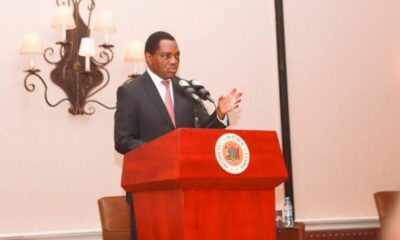

Zambia: President Hichilema launches Zambezi Economic Free Zone
-
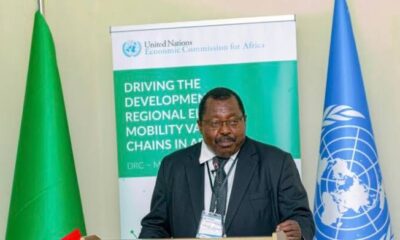

Zambia announces tax waivers on electric vehicles to boost green economy
-
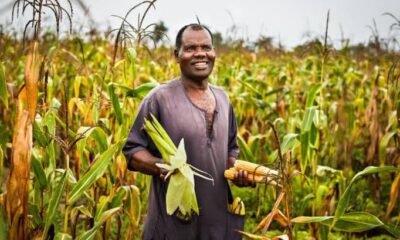

Zambian govt assures of adequate maize stocks as concerns mount over food security
-


Lungu: Zambian law association calls for respect of court decisions
-
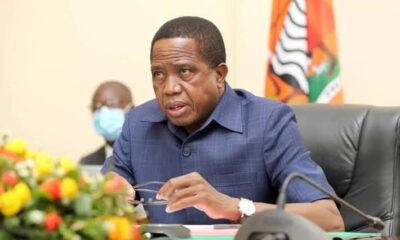

Zambia: Ex-President Lungu alleges political manipulation after barring from 2026 poll
Strictly Personal
Let’s merge EAC and Igad, By Nuur Mohamud Sheekh
Published
3 weeks agoon
November 27, 2024
In an era of political and economic uncertainty, global crises and diminishing donor contributions, Africa’s regional economic communities (RECs) must reimagine their approach to regional integration.
The East African Community (EAC) and the Intergovernmental Authority on Development (Igad), two critical RECs in East Africa and the Horn of Africa have an unprecedented opportunity to join forces, leveraging their respective strengths to drive sustainable peace and development and advance regional economic integration and promote the African Continental Free Trade Area (AfCFTA).
Already, four of the eight Igad member states are also members of the EAC and, with Ethiopia and Sudan showing interest, the new unified bloc would be formidable.
Igad’s strength lies in regional peacemaking, preventive diplomacy, security, and resilience, especially in a region plagued by protracted conflicts, climate challenges, and humanitarian crises. The EAC, on the other hand, has made remarkable strides in economic integration, exemplified by its Customs Union, Common Market, and ongoing efforts toward a monetary union. Combining these comparative advantages would create a formidable entity capable of addressing complex challenges holistically.
Imagine a REC that pairs Igad’s conflict resolution strengths with the EAC’s diplomatic standing and robust economic framework. Member states of both are also contributing troops to peacekeeping missions. Such a fusion would streamline efforts to create a peaceful and economically prosperous region, addressing the root causes of instability while simultaneously promoting trade investment and regional cooperation.
These strengths will be harnessed to deal with inter-state tensions that we are currently witnessing, including between Ethiopia and Somalia over the Somaliland MoU, strained relations between Djibouti and Eritrea, and the continually deteriorating relations between Eritrea and Ethiopia.
The global economy experienced as a result of the COVID-19 pandemic, compounded by the Ukraine war and competing global crises, has strained donor countries and reduced financial contributions to multilateral organisations and African RECs. Member states, many of which are grappling with fiscal constraints, are increasingly unable to fill this gap, failing to make timely contributions, which is in turn affecting key mandate areas of Igad and EAC, and staff morale.
A merger between Igad and EAC would alleviate this financial pressure by eliminating redundancies. Shared administrative systems, integrated programmes, and a unified leadership structure would optimise resources, enabling the new REC to achieve more with less. Staff rationalisation, while sensitive, is a necessary step to ensure that limited funds are channelled toward impactful initiatives rather than duplicative overheads.
The African Union (AU) envisions a fully integrated Africa, with RECs serving as the building blocks of the AfCFTA. A unified EAC-Igad entity would become a powerhouse for regional integration, unlocking economies of scale and harmonising policies across a wider geographical and economic landscape.
This merger would enhance the implementation of the AfCFTA by creating a larger, more cohesive market that attracts investment, fosters innovation, and increases competitiveness. By aligning trade policies, infrastructure projects, and regulatory frameworks, the new REC could serve as a model for others, accelerating continental integration.
The road to integration is not without obstacles. Political will, divergent institutional mandates, and the complexity of harmonising systems pose significant challenges. However, these hurdles are surmountable through inclusive dialogue, strong leadership, and a phased approach to integration.
Member states must prioritise the long-term benefits of unity over short-term political considerations. Civil society, the private sector, the youth, and international partners also have a critical role to play in advocating for and supporting this transformative initiative.
The time for EAC and Igad to join forces is now. By merging into a single REC, they would pool their strengths, optimise resources, and position themselves as a driving force for regional and continental integration. In doing so, they would not only secure a prosperous future for their citizens and member states but also advance the broader vision of an integrated and thriving Africa.
As the world grapples with crises, Africa must look inward, embracing the power of unity to achieve its potential. A combined Igad-EAC is the bold step forward that the continent needs.
Nuur Mohamud Sheekh, a diplomatic and geopolitical analyst based in London, is a former spokesperson of the Igad Executive Secretary. X: @NuursViews
Strictly Personal
Budgets, budgeting and budget financing, By Sheriffdeen A. Tella, Ph.D.
Published
4 weeks agoon
November 20, 2024
The budget season is here again. It is an institutional and desirable annual ritual. Revenue collection and spending at the federal, State and local government levels must be authorised and guided by law. That is what budget is all about. A document containing the estimates of projected revenues from identified sources and the proposed expenditure for different sectors in the appropriate level of government. The last two weeks have seen the delivery of budget drafts to various Houses of Assembly and the promise that the federal government would present its draft budget to the National Assembly.
Do people still look forward to the budget presentation and the contents therein? I am not sure. Citizens have realised that these days, governments often spend money without reference to the approved budget. A governor can just wake up and direct that a police station be built in a location. With no allocation in the budget, the station will be completed in three months. The President can direct from his bathroom that 72 trailers of maize be distributed to the 36 states as palliatives. No budget provision, and no discussion by relevant committee or group.
We still operate with the military mentality. We operated too long under the military and of the five Presidents we have in this democracy, two of them were retired military Heads of State. Between them, they spent 16 years of 25 years of democratic governance. Hopefully, we are done with them physically but not mentally. Most present governors grew up largely under military regimes with the command system. That is why some see themselves as emperor and act accordingly. Their direct staff and commissioners are “Yes” men and women. There is need for disorientation.
The importance of budget in the art of governance cannot be overemphasized. It is one of the major functions of the legislature because without the consideration and authorisation of spending of funds by this arm of government, the executive has no power to start spending money. There is what we refer to as a budget cycle or stages. The budget drafting stage within the purview of the executive arm is the first stage and, followed by the authorisation stage where the legislature discusses, evaluates and tinkers with the draft for approval before presenting it to the President for his signature.
Thereafter, the budget enters the execution phase or cycle where programmes and projects are executed by the executive arm with the legislature carrying out oversight functions. Finally, we enter the auditing phase when the federal and State Auditors verify and report on the execution of the budgets. The report would normally be submitted to the Legislature. Many Auditor Generals have fallen victim at this stage for daring to query the executives on some aspects of the execution in their reports.
A new budget should contain the objectives and achievements of the preceding budget in the introduction as the foundation for the budget. More appropriately, a current budget derives its strength from a medium-term framework which also derives its strength from a national Development Plan or a State Plan. An approved National Plan does not exist currently, although the Plan launched by the Muhammadu Buhari administration is in the cooler. President Tinubu, who is acclaimed to be the architect of the Lagos State long-term Plan seems curiously, disillusioned with a national Plan.
Some States like Oyo and Kaduna, have long-term Plans that serve as the source of their annual budgets. Economists and policymakers see development plans as instruments of salvation for developing countries. Mike Obadan, the former Director General of the moribund Nigeria Centre for Economic and Management Administration, opined that a Plan in a developing country serves as an instrument to eradicate poverty, achieve high rates of economic growth and promote economic and social development.
The Nigerian development plans were on course until the adoption of the World Bank/IMF-inspired Structural Adjustment Programme in 1986 when the country and others that adopted the programme were forced to abandon such plan for short-term stabilisation policies in the name of a rolling plan. We have been rolling in the mud since that time. One is not surprised that the Tinubu administration is not looking at the Buhari Development Plan since the government is World Bank/IMF compliant. It was in the news last week that our President is an American asset and by extension, Nigeria’s policies must be defined by America which controls the Bretton Woods institutions.
A national Plan allows the citizens to monitor quantitatively, the projects and programmes being executed or to be executed by the government through the budgeting procedure. It is part of the definitive measures of transparency and accountability which most Nigerian governments do not cherish. So, you cannot pin your government down to anything.
Budgets these days hardly contain budget performance in terms of revenue, expenditure and other achievements like several schools, hospitals, small-scale enterprises, etc, that the government got involved in successfully and partially. These are the foundation for a new budget like items brought forward in accounting documents. The new budget should state the new reforms or transformations that would be taking place. Reforms like shifting from dominance of recurrent expenditure to capital expenditure; moving from the provision of basic needs programmes to industrialisation, and from reliance on foreign loans to dependence on domestic fund mobilisation for executing the budget.
That brings us to the issue of budget deficit and borrowing. When an economy is in recession, expansionary fiscal policy is recommended. That is, the government will need to spend more than it receives to pump prime the economy. If this is taken, Nigeria has always had a deficit budget, implying that we are always in economic recession. The fact is that even when we had a surplus in our balance of payment that made it possible to pay off our debts, we still had a deficit budget. We are so used to borrowing at the national level that stopping it will look like the collapse of the Nigerian state. The States have also followed the trend. Ordinarily, since States are largely dependent on the federal government for funds, they should promote balanced budget.
The States are like a schoolboy who depends on his parents for school fees and feeding allowance but goes about borrowing from classmates. Definitely, it is the parents that will surely pay the debt. The debt forgiveness mentality plays a major role in the process. Having enjoyed debt forgiveness in the past, the federal government is always in the credit market and does not caution the State governments in participating in the market. Our Presidents don’t feel ashamed when they are begging for debt forgiveness in international forum where issues on global development are being discussed. Not less than twice I have watched the countenance of some Presidents, even from Africa, while they looked at our president with disdain when issues of debt forgiveness for African countries was raised.
In most cases, the government, both at the federal and state cannot show the product of loans, except those lent by institutions like the World Bank or African Development Bank for specific projects which are monitored by the lending institutions. In other cases, the loans are stolen and transferred abroad while we are paying the loans. In some other cases, the loans are diverted to projects other than what the proposal stated. There was a case of loans obtained based on establishing an international car park in the border of the State but diverted to finance the election of a politician in the State. The politician eventually lost the election but the citizens of the State have to be taxed to pay the loan. Somebody as “Nigeria we hail thee”.
Transformation in budgeting should commence subsequently at the State and federal level. Now that local government will enjoy some financial autonomy and therefore budgeting process, they should be legally barred from contracting foreign loans. They have no business participating in the market. They should promote balanced budget where proposed expenditures must equal the expected revenues from federal and internal sources. The State government that cannot mobilise, from records, up to 40 percent of its total budget from IGR should not be supported to contract foreign loans. The States should engage in a balanced budget. The federal government budget should shift away from huge allocations to recurrent expenditure towards capital expenditure for capital formation and within the context of a welfarist state.
Sheriffdeen A. Tella, Ph.D.
EDITOR’S PICK


Ghana: President-elect Mahama appoints anti-corruption team
According to a statement released by his transition team on Wednesday, Ghana’s President-elect, John Dramani Mahama, has designated an anti-corruption...


Nigerian woman trafficked to Iraq cries out for help, begs to return home
A young Nigerian lady identified as Odunayo Eniola Isaac, who is a victim of human trafficking, has cried out for...


DR Congo sues tech giant Apple over illegal mineral exploitation
The Democratic Republic of Congo (DRC), has filed a criminal case against the European subsidiaries of tech giant, Apple, accusing...


UNESCO lists Ghana’s Kente cloth as cultural heritage
The iconic Ghanaian Kente, a piece of clothing, has been recognized as a cultural heritage on UNESCO’s Representative List of...


Zambia: FOX report highlights persistent media harassment, calls for reforms
A new Freedom of Expression (FOX) report by the Media Institute for Southern Africa (MISA) Zambia, has raised concerns over...


Egyptian court upholds ex-presidential candidate Ahmed Tantawy’s sentence
Former presidential candidate, Ahmed Tantawy, and his campaign manager, Mohamed Abou El-Diar, were found guilty of faking election paperwork, and...


Court orders Uganda to compensate LRA war crimes victims
Uganda’s tribunal has ordered the government to pay up to 10 million Ugandan shillings ($2,740) to each victim of Lord’s...


Nigeria: 614,937 killed, 2.2m abducted in 1 year— Report
A new report released on Tuesday by the National Bureau of Statistics (NBS) has revealed that over 614,937 Nigerians were...


Seeking to expand ties in Africa, Indonesia’s Prabowo attends D-8 economic meeting in Egypt
According to the government, Indonesian President, Prabowo Subianto, travelled to Egypt on Tuesday to attend meetings of the D-8 Organisation...


M23 Angola peace talks break down as Congo, Rwanda dash hopes
Hopes of an agreement to end Congo’s M23 rebel conflict, which has displaced over 1.9 million people, were dashed when...
Trending
-

 VenturesNow1 day ago
VenturesNow1 day agoNigeria’s November inflation rate hits 34.60%
-

 VenturesNow1 day ago
VenturesNow1 day agoIMF’s latest board reviews result in $182 million to Rwanda
-

 VenturesNow1 day ago
VenturesNow1 day agoNigeria obtains $600 million international loans for agriculture
-

 Politics1 day ago
Politics1 day agoM23 Angola peace talks break down as Congo, Rwanda dash hopes


